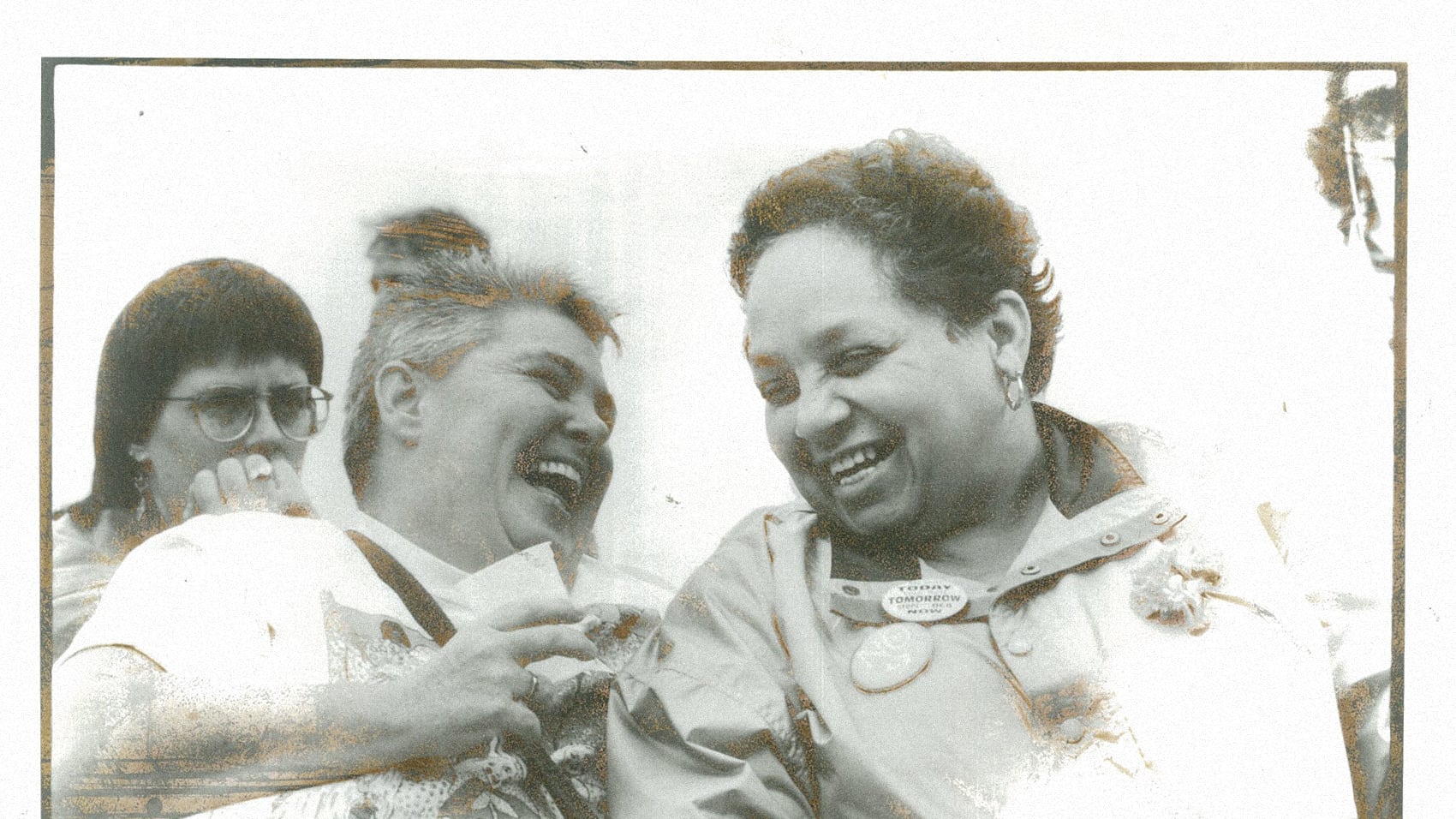For the past 50 years, civil rights and social justice leader Kathleen Saadat has advocated for women, people of color, LGBTQ+ and poor people. “For me, as a woman, it is all the same struggle,” she says.
Saadat helped organize the first Pride march in Portland in 1976 (200 people showed up). She became Oregon’s director of affirmative action in 1987. Later, working for City Commissioner Gretchen Kafoury, she and influential gay leader Keeston Lowery spearheaded the drafting of the city’s first civil rights ordinance, which prohibited discrimination based on sexual orientation.
A fateful moment arrived in 1992 with Measure 9. The statewide measure was one of the harshest anti-gay initiatives in the nation. The measure sought to amend the Oregon Constitution to ban civil rights protections based on sexual orientation. It also directed Oregon’s public schools to teach that “homosexuality, pedophilia, sadism and masochism were…unnatural and perverse.”
Saadat became one of the leading opponents of Measure 9. She crisscrossed the state, helping to build a statewide coalition, including faith organizations and communities of color. In the end, Oregon voters shot the proposal down, 56% to 44%.
Saadat came to Portland from Missouri in 1970 and enrolled at Reed College, graduating with a degree in psychology. She spent her early activist days at a women’s bookstore but remembers finding herself ostracized at times because she was Black. “It wasn’t meanness,” she says, “it was fear.” But the discrimination stung.
As an activist with decades of organizing experience, Saadat hopes newer generations will think more deeply about how to enact change. While protesting is an important part of the process, she says, “It doesn’t end there.”
“Within LGBTQ+ movement, we contain every other group, every race, every gender, every ability, every intellectual capacity, all of it,” she says. “We should use that force to organize for that better world we talk about, where people are more equal.”
Every individual matters. “Whether you write postcards and letters to express your opinion to elected officials or decide not to, whether you attend your local neighborhood association, PTA or school board meeting or not, you influence the direction and speed of change,” she says. “Whether you speak out or are silent in the face of bigotry, your presence or your absence make a difference in outcomes.”
She’s hopeful for the future. “One of the biggest challenges for us is to fight cynicism, to retain a sense of hope and stay active,” she says. “If we’re not building coalitions, we’re not doing the work.”
Next Story > 1992: Portland Farmers Market
 Opens in new window
Opens in new window
